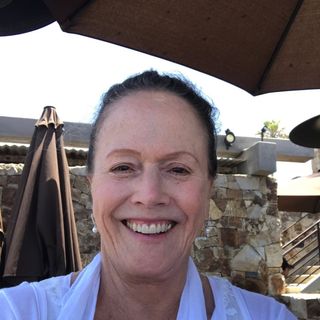Why should I hire a coach?
My sister-in-law came up with the best answer I have heard, “If they could have changed by now, they would have.”
You are not alone if you want a more productive and fulfilling life, yet feel it is unattainable. You have probably made many attempts to ‘do life better’; to feel less stressed, to be more organized, more efficient, and productive, to have more energy, to lose weight, to take better care of yourself, etc. One man said, “ Why is it that I don’t do what I tell myself to do?”
The People Who Most Benefit from Coaching
People of all ages and from all walks of life can benefit from coaching. The individuals who benefit most have a strong desire for personal growth and improvement. They are ready to do life differently. They are committed to taking action and they participate fully in the coaching process. They also have the willingness and desire to be accountable to their coach. In essence, individuals who are ready to get out of their own way benefit the most from coaching.
I’ve had the privilege of observing individuals improve their lives because they consciously made the choices necessary to grow and change. Each learned that by being vulnerable and willing to examine one’s lifestyle, habits, use of time, and relationships revealed new possibilities. They are ready to live life differently.
How can my coaching help you?
My coaching focuses on your specific needs, meeting you where you are in life. I foster a supportive, outcome-oriented process in which you and I collaborate to choose the tools and strategies that work best for you. Being a part of people’s transformations as they learn to take control of their lives is a gift. A client who feels successful and confident is empowered to achieve his/her aspirations. It’s never too late.
THE WELLNESS MODEL OF COACHING
Coaching is a client-driven process. Coaching is based on a wellness model; clients need to be ready, willing, and ABLE to work with a coach. If overriding problems with depression or other medical issues are inhibiting daily functioning and are left untreated, then the coaching will not be successful. In most cases, I will work in tandem with the individual’s various healthcare provider(s) to overcome these obstacles.
I provide encouragement, recommendations, feedback, and practical techniques such as reminders, questions, and calendar monitoring to help you stay on track. Together you and I develop recipes to create new habits, suggestions as to how to remain compliant and be your word, strategies to address issues such as time management, eliminating clutter in one’s home or office, and becoming more effective in one’s personal and professional lives. I am NOT a psychotherapist and I work with clients on tactical, not psychological, issues.
BEFORE OUR SESSIONS BEGIN
All of my clients are asked to watch a series of short videos called Setting the Stage for Success. The content of these videos includes critical background information and vocabulary about the brain, primitive responses, learning, habits, emotions, and self-regulation. With common terminology in place, it is much easier to provide support and scaffolding for clients. I also introduce my clients to the Tiny Habits Method.
I want my clients to understand the biological basis for understanding themselves as it relates to their challenges, the process of change, and making choices. Clients are made aware that when their life isn’t working the way they want them to, they are faced with design flaws, not character flaws. They’ll have the foundation to learn that change is a skill and emotions create habits. After watching and discussing these videos, many see, sometimes for the first time, a glimmer of hope.
How flexible are coaching times and locations?
I offer in-person coaching in the North County San Diego area, online coaching via Zoom, phone (602-524-9302), or email.
Do you accept medical insurance?
No. Prioritize Habits® offers educational services, not medical services. I will happily collaborate with teachers, therapists, doctors, and other support personnel.


